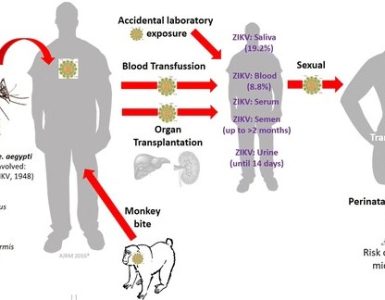 The U.S. Food and Drug Administration permitted marketing of a new diagnostic test to aid in detecting a type of herpes virus called cytomegalovirus (CMV) in newborns less than 21 days of age.
The U.S. Food and Drug Administration permitted marketing of a new diagnostic test to aid in detecting a type of herpes virus called cytomegalovirus (CMV) in newborns less than 21 days of age.
“Although most people who become infected with cytomegalovirus face little to no risk of serious illness, the virus has the potential to cause serious illness for people with weak immune systems and in newborn babies,” said Tim Stenzel, director of the Office of In Vitro Diagnostics and Radiological Health in the FDA’s Center for Devices and Radiological Health. “This test for detecting the virus, when used in conjunction with the results of other diagnostic tests, may help health care providers more quickly identify the virus in newborns and determine the best approach for the child.”
According to the Centers for Disease Control and Prevention, more than half of adults by age 40 have been infected with CMV. Most people infected with CMV show no signs or symptoms of infection. However, CMV infection can cause serious health problems for people with weakened immune systems and for some newborns. Congenital CMV occurs when a baby is infected with CMV during pregnancy. Although most babies with CMV will not have any signs or symptoms of infection, some babies can develop hearing problems or other long-term health problems.
The Alethia CMV Assay Test System is used as an aid in the diagnosis of congenital CMV infection by detecting CMV deoxyribonucleic acid (DNA) from a saliva swab. Test results should be used only in conjunction with the results of other diagnostic tests and clinical information.
The FDA evaluated the analytical and clinical performance of the device. Data from a prospective clinical study showed that 1,472 saliva samples out of 1,475 samples collected from newborns were correctly identified by the device as negative for the presence of CMV DNA. Three samples were incorrectly identified as positive when they were negative. Five collected saliva specimens were correctly identified as positive for the presence of CMV DNA. The FDA also reviewed data from a testing of 34 samples of archived specimens from babies known to be infected with CMV in which all the archived specimens were correctly identified by the device as positive for presence of CMV DNA.
The FDA reviewed the Alethia CMV Assay Test System through the de novo premarket review pathway, a regulatory pathway for novel, low-to-moderate-risk devices of a new type. Along with this authorization, the FDA is establishing criteria, called special controls, which determines the requirements for demonstrating accuracy, reliability and effectiveness of tests intended to be used as an aid in the diagnosis of congenital CMV infection. These special controls, when met along with general controls, provide a reasonable assurance of safety and effectiveness for tests of this type.
Source: FDA News

















